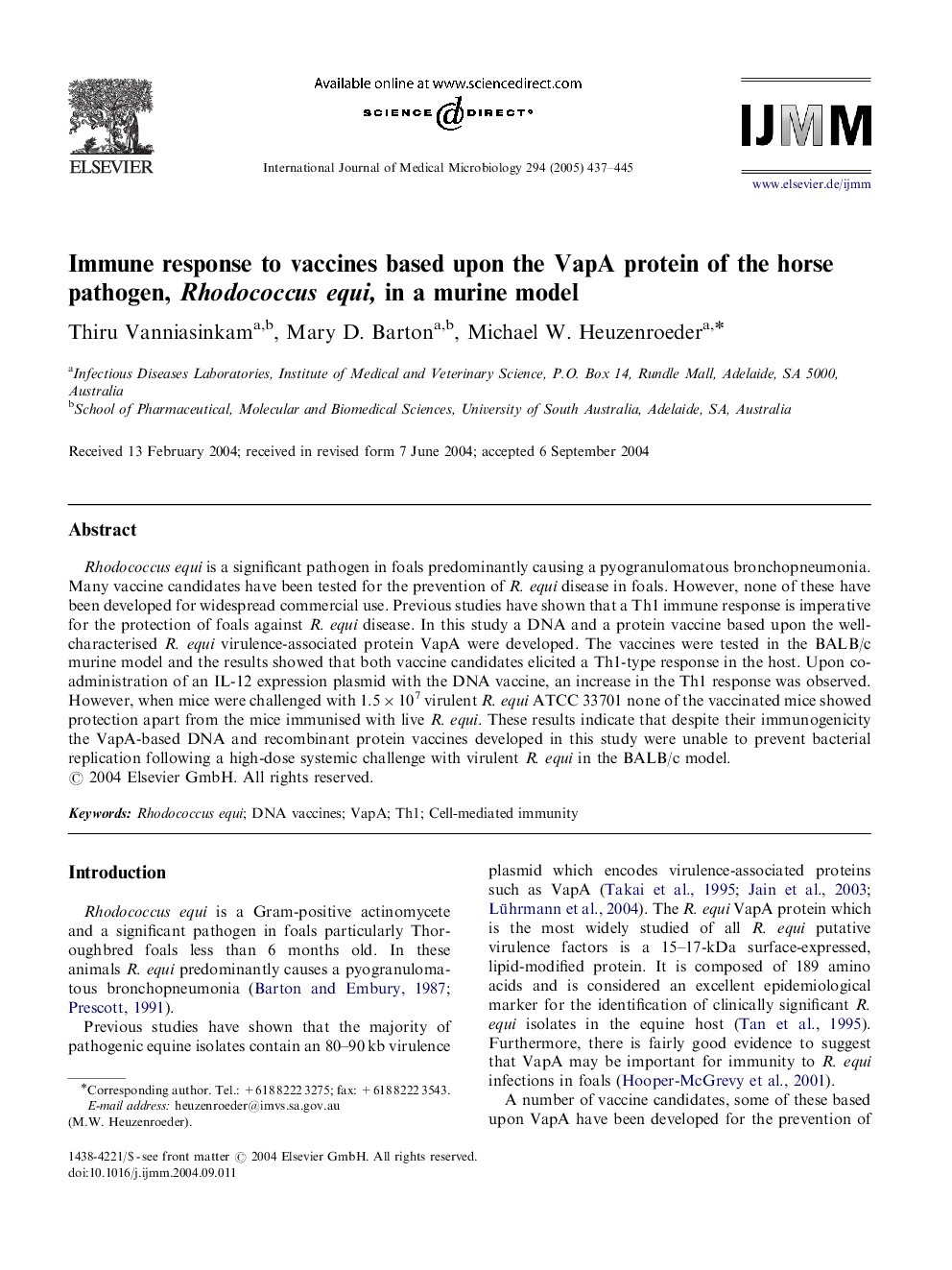| Article ID | Journal | Published Year | Pages | File Type |
|---|---|---|---|---|
| 9899213 | International Journal of Medical Microbiology | 2005 | 9 Pages |
Abstract
Rhodococcus equi is a significant pathogen in foals predominantly causing a pyogranulomatous bronchopneumonia. Many vaccine candidates have been tested for the prevention of R. equi disease in foals. However, none of these have been developed for widespread commercial use. Previous studies have shown that a Th1 immune response is imperative for the protection of foals against R. equi disease. In this study a DNA and a protein vaccine based upon the well-characterised R. equi virulence-associated protein VapA were developed. The vaccines were tested in the BALB/c murine model and the results showed that both vaccine candidates elicited a Th1-type response in the host. Upon co-administration of an IL-12 expression plasmid with the DNA vaccine, an increase in the Th1 response was observed. However, when mice were challenged with 1.5Ã107 virulent R. equi ATCC 33701 none of the vaccinated mice showed protection apart from the mice immunised with live R. equi. These results indicate that despite their immunogenicity the VapA-based DNA and recombinant protein vaccines developed in this study were unable to prevent bacterial replication following a high-dose systemic challenge with virulent R. equi in the BALB/c model.
Related Topics
Life Sciences
Biochemistry, Genetics and Molecular Biology
Biochemistry, Genetics and Molecular Biology (General)
Authors
Thiru Vanniasinkam, Mary D. Barton, Michael W. Heuzenroeder,
